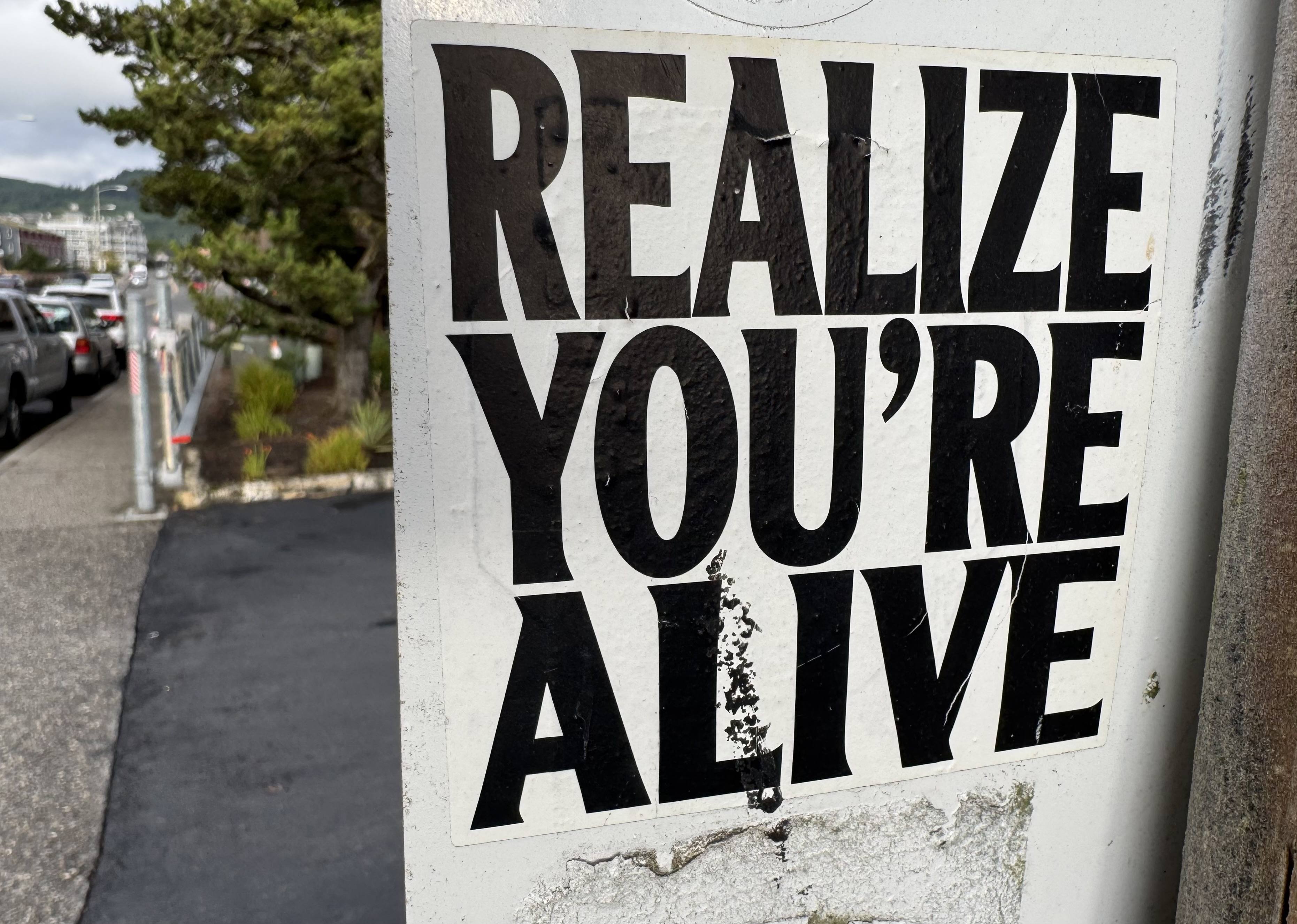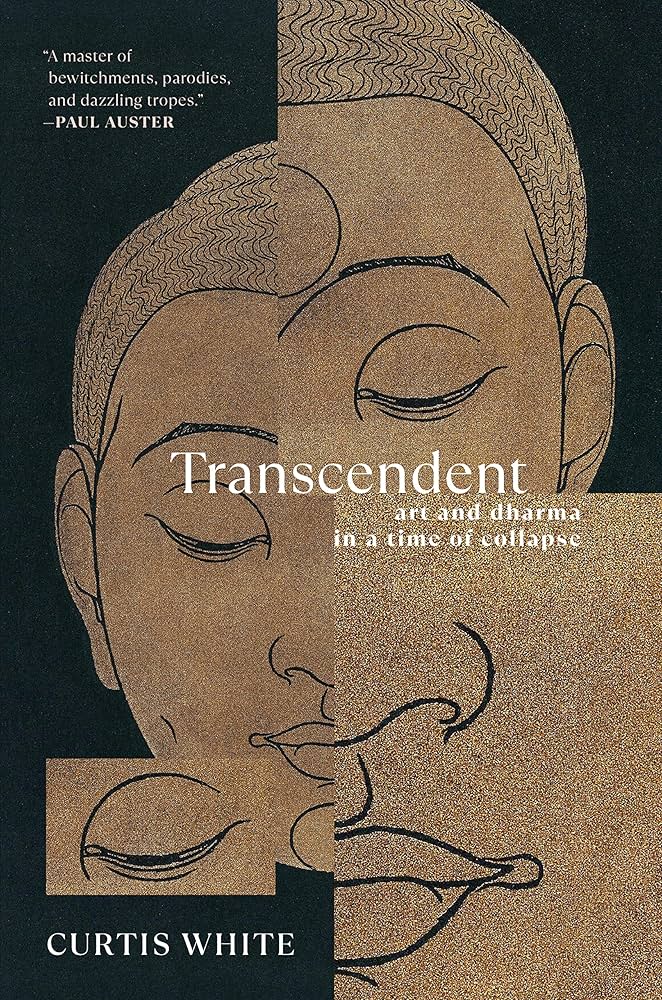


































































Photograph by Nathaniel St. Clair
I am living in a world that no longer exists.
I once lived in a vital world whose only limit was no-limit, “free frame of reference,” as the Haight Street Diggers thought. It was a world of beatniks, Buddhists, hippies, free-jazz poets, pacifists, wandering guitar soloists, postmodern fabulists, soulful anarchists, and collaborative maunderers. It was also a world of close readers, deconstructors, and afficionados of the beautiful, all performing in the heady atmosphere of refusal, a general strike of the Imagination.
It was the rebirth of the romantics, bohemians, Poets with a capital P, and Oscar Wildean dandies. In the face of the work ethic, bohemians old and new had the “right to be lazy,” as Marx’s son-in-law Paul Lafargue declared, or the right to “do your own thing,” as hippy culture would later agree. Of course, this is not a description of a real world, “how it was back then,” but of a psychic climate, the lovely mists and roiling waters of which still sustain my inner life. As Ted Gioia writes in his book Music: A Subversive History, the era brought “a highly contagious psychic treason to prevailing values.”
This world and its open assumptions about possibility slowly dissipated over a thirty-year period. As the late Sly Stone put it, “The possibility of possibility was leaking out.” It seemed quite dead by the millennium, our collective mind aspirated into glass pipettes by techno-oligarchs and assorted others who bore us no love. We were left with Data World, the Great American Smartphone Society. We have been priced out of cities, so there are no avenues to barricade, no “scenes” where artists and musicians can hang out, and our universities are in ruin, occupied by “indentured students,” in Elizabeth Tandy Shermer’s telling phrase, studying only what the boss wants. And what the boss wants has nothing to do with poets. Even at Canterbury’s Christ Church University, the destination for Chaucer’s pilgrims in The Canterbury Tales, poetry is “no longer viable in the current climate.”
And yet my heart/mind still resides in that other world, that yesterday world, the world that no longer exists.
Whatever for?
Of course, the feeling of living in a non-existent world is not a new thing. Every human life that goes beyond the thirtieth year will be familiar with it to some degree. The Austrian writer Stefan Zweig wrote a book about it titled The World of Yesterday.
For Zweig, that meant late nineteenth and early twentieth century Europe and its generation of elite artists and intellectuals like Freud, the novelist Romaine Rolland, and the modernist composer Richard Strauss. But in 1939, after the rise of Hitler, Zweig and his wife, Lotte, went into exile not only from Austria but from a world rich with music, words, images, and ideas. His novels had been placed on the Nazi’s list of proscribed books and burned, and it was increasingly clear that, as a Jew, he himself was likely on a different and deadlier list. They went to London first, then to the United States, where they were guests of Yale University, and finally to a small German colony in Petrópolis, Brazil, of all unlikely and far-flung places for a Viennese aesthete. In 1942, he committed suicide with his wife by an overdose of sleeping pills. As he explained in a note, “I think it better to conclude in good time and in erect bearing a life in which intellectual labor meant the purest joy.”
A photograph was taken of the bodies of Zweig and Lotte lying on a small bed. He is shaved, mustache
neatly trimmed, in a shirt and tie. She is in fetal posture, snuggled at his side, as if they were just napping after sex, or as if patiently waiting for whatever life came next. Her left hand covers and comforts his folded hands. The fatal box of sleeping pills sits on the bedside table beside a water glass. There is no book on the table for bedtime reading. No need for that any longer. Zweig had sent the manuscript of his last book, The World of Yesterday, to his publisher the previous day. Everything is tidy, nothing left undone, except all the things he might have done had he chosen to live on. Suicide was Zweig’s way of checking out of the grand fantasy of cosmopolitan Europe, soon to become a mass grave. 
Also in 1939, the first year of Zweig’s exile, Jean Renoir’s movie The Rules of the Game was released. It tells the story of that historical moment, Germany and France once again on the threshold of war, but in a very different way. Rather than mourning the death of Europe’s rich culture, Renoir suggests that Zweig’s privileged class was to a degree responsible for the nearing catastrophe.
The film takes place at a country estate called La Colinière among members of the haute-bourgeoisie. This is the stage for Renoir’s display of the upper-crust’s moral indifference to everyone and everything (especially rabbits) outside of their own class. For them, life is simply the “rules of the game” that apply inside of their caste. As the character Octave explains, “You see, in this world, there is one awful thing, and that is that everyone has his reasons.” In other words, everyone knows the rules/reasons of the social class game, even if it is inhuman to follow them. As Renoir explained:
[W]hat is interesting about this film, perhaps, is the moment when it was made. It was shot between Munich and the war, and I shot it absolutely impressed, absolutely disturbed by the state of mind of a part of French society, a part of English society, a part of world society.
The Rules of the Game is not a tragedy but a terminal comedy. It is a farewell party. It is “laughter out of dead bellies,” in Ezra Pound’s phrase.
Zweig was part of the “state of mind” that Renoir describes. Zweig confesses that the intellectual elite of Vienna were not awake to the rough beast slouching toward them. Zweig writes, “[We] noticed little of these dangerous changes in our native land; our eyes were bent entirely on books and pictures.” In Nietzsche’s words, Zweig lived “in a happy blindness between the past and the future.”
The World of Yesterday is an acknowledgment that this abundance of kultur, all these erudite manners, the strict enforcement of elite conduct, all this endless cultural elaboration and haughty indifference, would soon be, literally, ash in the wind. Like so many at the time, Zweig was in exile not only from his home, but from everything he had taken to be reality, and he was incapable of imagining a new reality. For Zweig, suicide was nothing because his world was already dead. He was a victim of history twice over: as a refugee and as someone who could not live beyond the memory of a world that no longer existed. As Nietzsche wrote in The Use and Abuse of History, an obsession with the past destroys the possibility of a living present:
One who cannot…forget the past, who cannot stand on a single point, like a goddess of victory, without fear or giddiness, will never know what happiness is; and, worse still, will never do anything to make others happy.
On the other hand, Renoir was one who could see the history that Zweig was ruined by but then proceed to the next “joyful deed,” the making of a work of art. Renoir was Zweig’s health-giving opposite, a rule-breaker and a world-maker. As the British Socialist Worker described his work in 2006:
[The] great quality in Renoir’s movies is that he is always a rebel. In Renoir’s movie world, rules are for breaking, conventions are for disregarding, and authority is for mocking.
In our own very much more dangerous world—threatened not only by fascism but also by nuclear annihilation, climate disruption, spreading food deserts, and ever-larger and more desperate masses of migrants—we too fail to see the writing on the wall even though, once again, it is right before us in
“letters of fire,” as Zweig wrote. Worse, it is not at all clear that we can do what Nietzsche thought was crucial: “to assimilate and digest the past and turn it to sap.”
Happily, it will always be possible to create stories that liberate us from the stories of our masters. This is what William Blake called for when he wrote in Jerusalem (1815), “I must create a system or be enslaved by another man’s; I will not reason and compare: my business is to create.” Or, even more assertively, William Carlos Williams in Kora In Hell (1920):
There is nothing sacred about literature, it is damned from one end to the other. There is nothing in literature but change and change is mockery. I’ll write whatever I damn please, whenever I damn please and as I damn please and it’ll be good if the authentic spirit of change is on it.
That, for me, has always been gospel.
Blake’s quote is “heavy,” as hippies used to say, because it asks, as Tolstoy put it, “What is to be done?” The answer to that question might simply be “tell better stories.” Live through better stories. Live through stories that will be understood in an as yet unimagined world, just past the next bend in the river, where the Imagination lives in all its inherited riches. So, let us be Nietzschean, all too Nietzschean, without fear or giddiness, and seek liberation for ourselves and others.
The post Psychic Treason appeared first on CounterPunch.org.
This content originally appeared on CounterPunch.org and was authored by Curtis White.